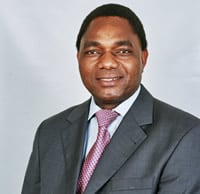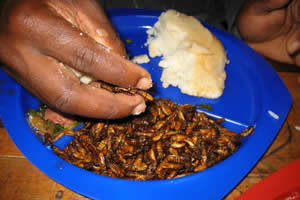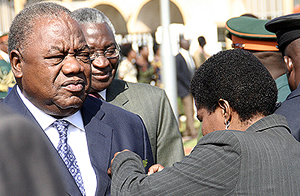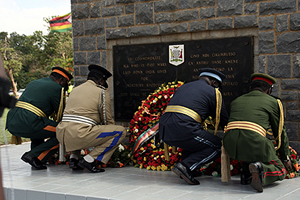Lusaka Dynamos will face Zesco United for the second time this month in a cup game with a forthcoming fixture coming up in the in the Barclays Cup semifinals on November 22 at the Trade Fair Grounds in Ndola.
In the draws made on Monday, November 10 at Football House in Lusaka, the other semifinal match will see Green Buffaloes play Power Dynamos in a doubleheader at same venue.
Dynamos and Zesco will face-off just a fortnight after clashing in the BP Top 8 final that saw the former beat the latter 1-0 at Nchanga Stadium in Chingola on November 8.
The draws saw Power and Dynamos both kept apart after being seeded 1st and 2nd respectively on the goal tally in this years competition up to the quarterfinal stage.
Power has 5 goals while Dynamos is one goal behind the Kitwe club in the tournament so far.
The final is set for December 6 at a venue to be announced later by Faz.
FAZ PONDERS MOVING BIG GAMES FROM COPPERBELT
Faz has threatened to stop staging international and cup games on the Copperbelt following poor crowd attendances during recent matches there.
Faz general secretary George Kasengele said on Monday that Football House was concerned about the poor spectator attendances over the last 30 days in two high-profile matches staged at Nchanga Stadium.
A modest crowd watched Zambia Under-20’s 1-0 home defeat against Egypt on October 11 in a 2009 Africa Youth Cup 2nd round, return leg qualifier.
Another poor crowd characterized last Saturdays BP Top 8 final match there between Lusaka Dynamos and Zesco United.
Kasengele said while it was Faz and the stakeholders duty to help raise the standards of the game, the onus was also on the fans to rekindle some passion of the old blood and thunder clashes.
TAMANGA DEMOTED
The Great “Tamanga” Zamsure has been demoted from the Faz league.
Zamsure will next season be campaigning in the Lusaka league football amateur league.
Bottom placed Zamsure’s 2-1 home defeat to 8th positioned Sable Bulls coupled with 5th from bottom TP Rangers’ 2-1 home win over top-five side Amakumbi Star on Sunday confined Tamanga to the amateur ranks.
Zamsure, on 21 points from 28 games with two more matches left to play, cannot catch TP who rose from 27 to 30 points on the table.
Tamanga were demoted from the Faz Premier League in 2002 to division 1 south before dropping at division 2 south in 2006.
Weekend Scorecard
BP Top 8 Final
08/11/2008
Nchanga Stadium, Chingola
Zesco United 0- Lusaka Dynamos 1(Jopshet Nkhoma 89″)
2008 Barclays Cup Semifinal Draws
22/11/2008
Trade Fair Grounds, Ndola
Green Buffaloes- Power Dynamos (KO: 13:00)
Zesco United- Lusaka Dynamos (KO: 15:00)
Faz Premier League
Week 26
09/11/2008
Green Eagles 0-Green Buffaloes 3(Sebastain Mwansa 26″, Sekelani Mwale 30″, Lawrence Phiri 46″ pen)
Red Arrows 0-Nkwazi 1(Isaac Mutantabowa 57″)
10/11/2008
Nchanga Rangers 0-Young Arrows 0
Nkana 1(Max Phiri 88″)-Konkola Blades 1(Robert Tembo 26″)
Power Dynamos 2(Chanda Mwaba 63″, Luka Lungu 76″)- Roan United Ben Mwanza 12″, Lyson Sikaonga 88″)
Chambishi 1(Vancious Maphande 70″)-Kabwe Warriors 0
05/11/2008
Zanaco 1(Given Singuluma 57″)- Zesco Untd (Nicholas Zulu 10″, Enoch Sakala 45″)
City Of Lusaka 1 (Aubrey Lusambo 11″ pen)- Lusaka Dynamos 0
Top Scorers After games Played 09/11/2008
LEAGUE, INTL & CUP:
Roger Kola (Zanaco): 13
Emmanuel Mayuka (Kabwe Warriors): 12
Aubrey Zulu (Green Eagles): 9
Francis Kombe (Power Dynamos): 9
Mathew Macha (Nchanga Rangers): 9
Chomba Ng’andwe (Young Arrows): 8
Simon Bwalya (Power Dynamos): 8
Kruger Mwansa (Young Arrows) : 7
Reuben Tembo (Green Buffaloes):7
Nicholas Zulu (Zesco United): 6
Jonah Sakuwaha (Zesco United): 6
Dan Sibanda (Red Arrows): 6
Brian Chilando (Green Buffaloes): 6
Kelvin Mumba (Roan United): 6
Patrick Kabamba (Nkana): 6
Chipulu Chileya (Konkola Blades): 6
Sebastian Mwansa (Green Buffaloes): 5
Morgan Hanjeema (Green Buffaloes): 5
Judge Mkandawire (Young Arrows): 5
Chisi Mbewe (Red Arrows): 5
Timothy Mbewe (Red Arrows): 5
Chileshe Kabwe (Konkola Blades): 5
William Njobvu (Lusaka Dynamos): 5
Lottie Phiri (Zesco United): 5
Josphat Nkhoma (Lusaka Dynamos): 4
Lawrence Phiri (Green Buffaloes): 4
Lyson Sikaonga (Roan United): 4
Enoch Sakala (Zesco United): 4
Luka Lungu (Power Dynamos): 4
Kennedy Nkethani (Zanaco): 4
Edward Kangwa (Nkwazi): 4
Musonda Mweuke (Kabwe Warriors): 4
Maybin Mwaba (Zesco United): 4
Ben Mwanza (Roan United) 4
Faz Division 1
09/11/2008
North
Week 28
Kitwe United 0 Forest Rangers 1
Zamtel 0 Mining Rangers 1
Lime Hotspurs 1 Ndola United 0
Kalewa 1 Medical 0
Muchindu 0 Mufulira Blackpool 1
Chidwin 1 Afrisports 1
Mufulira Wanderers 2 Tazara Express 2 (Abandoned due to heavy rains)
Indeni 0- Prison Leopards 0
South
Week 32
Kalomo Jetters 1 Nakambala Leopards 2
Choma Eagles 3 Lusaka City Council 1
Zamcoal Diggers 2 Petauke United 0
Young Green Eagles 0 Riflemen 1
Lusaka Tigers 1 Nampundwe 0
Nationa Assembly 1 Profound Warriors 1
Kambuku 0 Lusaka Celtic 2
Mazabuka United 0 Livingstone Pirates 0
Young Buffaloes 1- Chilanga Heroes 2
 The UPND has dispelled media reports suggesting that the party is pondering on an electoral pact with the Patriotic Front (PF).
The UPND has dispelled media reports suggesting that the party is pondering on an electoral pact with the Patriotic Front (PF).





